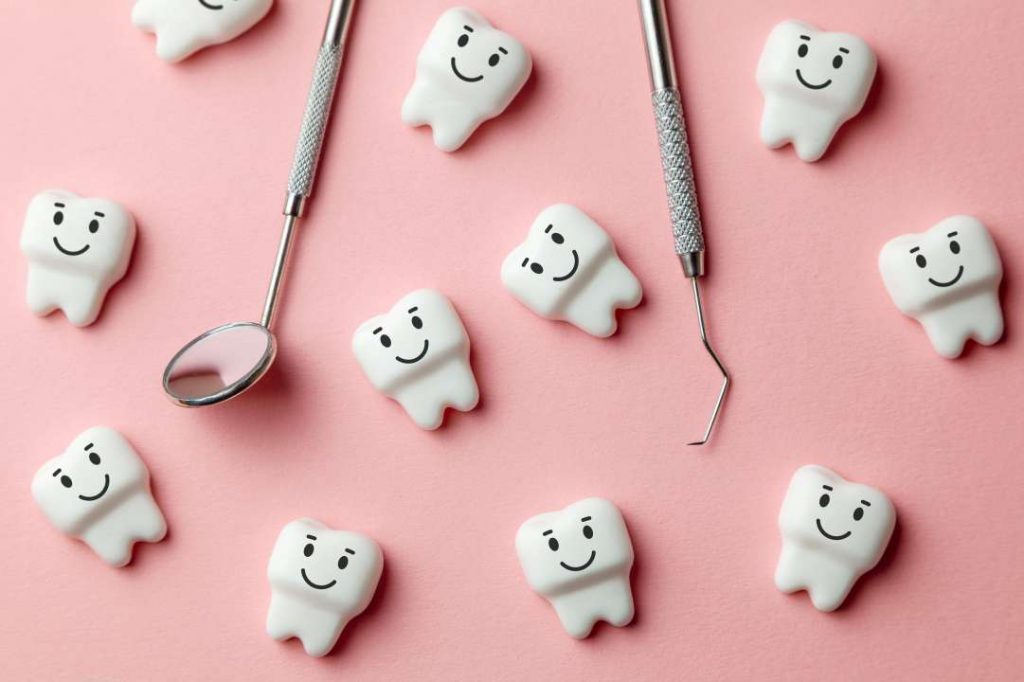The promotion of lifelong oral health for any child begins through educating expectant mothers about the importance of oral care during pregnancy. As a Saskatoon dental clinic concerned about pediatric dental care, we aim to help all of our patients understand the links between oral health and overall health. Because pregnant women are even more susceptible to oral health problems and the risks associated with such problems, any prenatal care plan should include conversations about oral health. Preemptive oral health care during pregnancy is essential to ensuring the overall health of both mom and baby into the future. If you or someone close to you is expecting a child, here’s what you should know about oral health during pregnancy:
The Risks of Poor Oral Health during Pregnancy
- Infants born with low birth weight
- Preterm birth
- Health issues for mom
- Early cavities and poor oral health for developing child
Pregnancy Gingivitis & Bleeding Gums
Hormonal changes during pregnancy can influence and alter the balance of bacteria in the mouth and lead to the development of gingivitis. Gingivitis is a condition in which the buildup of plaque and tartar become breeding grounds for bacteria who colonize the gingiva — the part of your gum around the base of your teeth. This can cause irritation, redness, swelling or bleeding around the gum line. Gingivitis is an early stage of periodontal disease. If left untreated, gingivitis worsen to jeopardize the structural integrity of the entire jaw, as well as increasing chances of poor pregnancy outcomes such as low birth weight or preterm birth.
Dietary Changes during Pregnancy
Changes in lifestyle and eating habits during pregnancy are common and may put pregnant women at an increased risk of developing cavities and tooth decay. As hormonal changes trigger changing food preferences, the body also has new nutrient needs to facilitate the development of a baby. For a healthy pregnancy with strong teeth and gums, an expectant mother should listen to her cravings while also ensuring she is getting enough folic acid, protein, calcium, phosphorus and vitamins A, C and D. When in doubt, it’s always a good idea to follow the food guide to healthy eating, which is more important during pregnancy than ever.
Morning Sickness & Acid Wear
Many women experience morning sickness throughout pregnancy, especially during the first trimester. When pregnancy nausea causes expectant mothers to vomit, the teeth become more frequently exposed to stomach acids that can accelerate acid wear. This weakens the enamel and increases the risk of tooth erosion and decay, which are linked undesired birth outcomes as well as reduced oral health for the baby.
Oral Health Tips for Pregnancy
- Let your dentist know if you are pregnant and schedule a dental checkup during your first trimester. Find out if extra cleanings would be beneficial during your pregnancy
- Enhance your oral health routine – brush and floss after meals as much as possible
- Rinse your mouth thoroughly with fluoridated water after morning sickness makes you vomit
- Watch your symptoms – look out for toothaches, tooth sensitivity, visible holes or discoloration on the teeth, dark or light spots on teeth, pain when chewing or biting down
- Increase calcium intake
Nurturing your oral health and overall wellness during pregnancy will increase your chances of having a successful birth without complications and a healthy newborn. Pregnant mothers with poor oral health have a risk of developing periodontitis, which is associated with poor pregnancy outcomes such as a pre-term delivery and/or low birth weights. You can reduce these risks by improving your own oral health while pregnant. For more information about prenatal and pediatric oral health services in Saskatoon, don’t hesitate to call Midtown Dental Clinic.
https://www.canada.ca/en/public-health/services/pregnancy/oral-health-pregnancy.html




